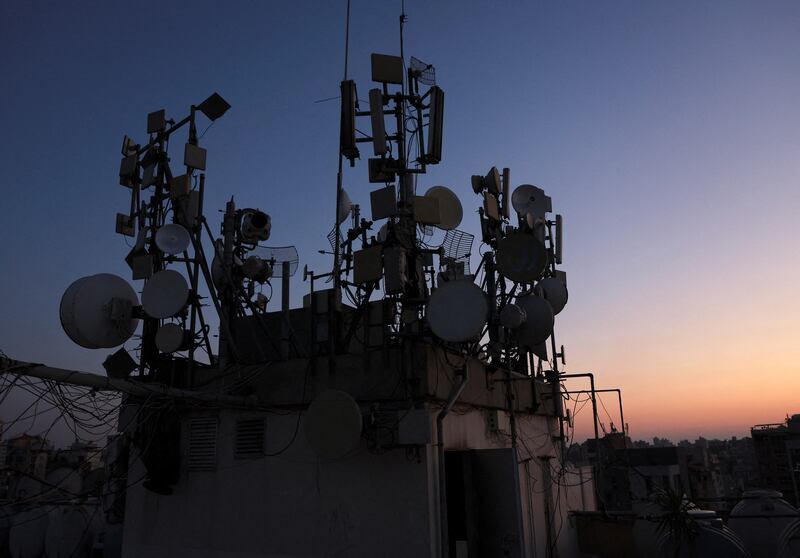Live updates: Follow the latest news on Israel-Gaza
Alfa, one of Lebanon's two main telecoms providers, said on Monday that its services remained disrupted in south Lebanon "due to Israeli bombardment" of its main base.
"Voice services are now available to our impacted subscribers through Touch network," it said, referring to Lebanon's other cell service provider, Touch.
Alfa's service was suspended amid an unprecedented volume of intense bombardment by both sides over the weekend.
"We remain in full co-ordination with the Lebanese army on assessing the suitable conditions and time to do necessary repair works at the Mheibeb station while taking into consideration the situation at the border," it added.
Damage to the station in the district of Marjayoun, which feeds into five other stations in the south, led to the “interruption of service to all the areas that are fed by these stations”, the company explained.
The Ministry of Communications in Lebanon stated that the two primary service providers, offering local roaming services in about twenty locations along the southern border, will serve Alfa users. Additionally, they will provide permanent alternative connections for users of the second cell company, Touch.
Alfa in early November said it was struggling to access its generators for refuelling, leading to periodic disruptions in its service.
Hezbollah and allied armed groups have been exchanging fire with Israel across the border since October 8, seeking to divert it from its assault on the Gaza Strip.
The conflict, now in its sixth week, continues to rage on the border of Lebanon and Israel, and Lebanese residents are concerned about communication cuts.
Lebanon’s caretaker government devised an emergency plan in October that included contingencies for mobile phone companies Alfa and Touch. Ogero, the state-owned company internet and phone provider released a statement last month announcing a series of measures "to ensure the continuity of its services in the event of war”.
An escalation in fighting in the last week has pushed Israel and the Lebanese Hezbollah group to broaden the unspoken rules of engagement.
On Monday, Hezbollah announced it launched two Burkan missiles at Israel’s Biranit Barracks.
Each Burkan missile weighs between 300kg and half a tonne, according to Hezbollah leader Hassan Nasrallah who announced two weeks ago the first instance of Burkan missile use against Israel.
“As a result of the launches toward the area of Biranit, a fire broke out. Israel Fire and Rescue Services are at the scene,” the Israeli military said of the incident. Videos posted to social media following the attack showed scenes of wide destruction in the area.
Israel did not report any casualties.
Hezbollah claimed 11 separate attacks on Israel on Sunday, ten the previous day, and seven before that, for a total of 28 separate attacks on Israeli targets.
Israel struck, either directly or near, 34 villages in south Lebanon in the last three days, by The National’s count. On Friday Israel struck deep into Lebanese territory, on the outskirts of the Nabatieh region for the first time since the July 2006 war.
No casualties were reported on either side in the last few days, despite the intensity of the bombardment.
The clashes have killed at least 88 people in Lebanon since October 8, mostly Hezbollah combatants as well as 10 civilians, according to an AFP tally.
In Israel, at least nine soldiers and three civilians have been killed as a result of the frontier war.







